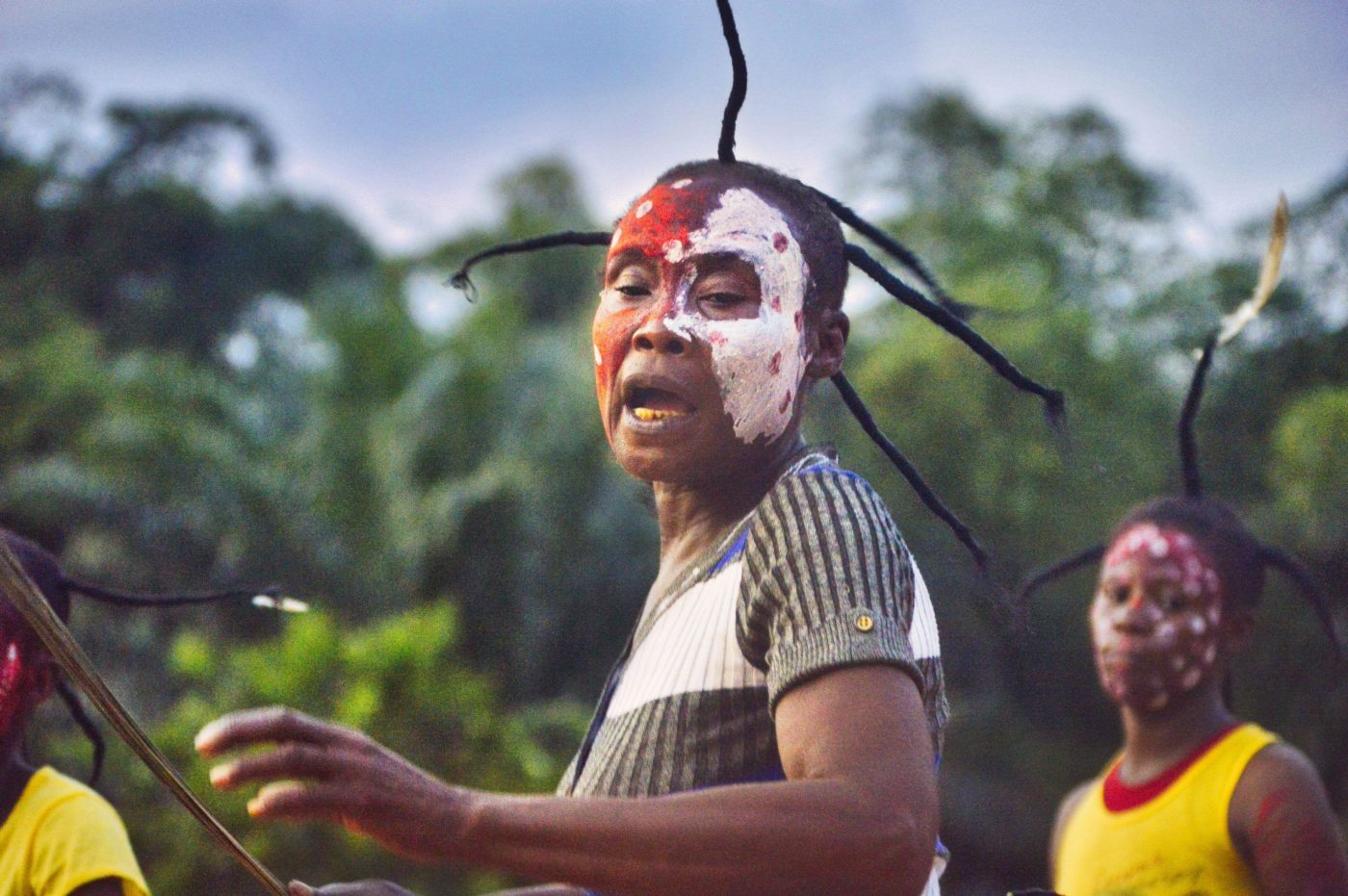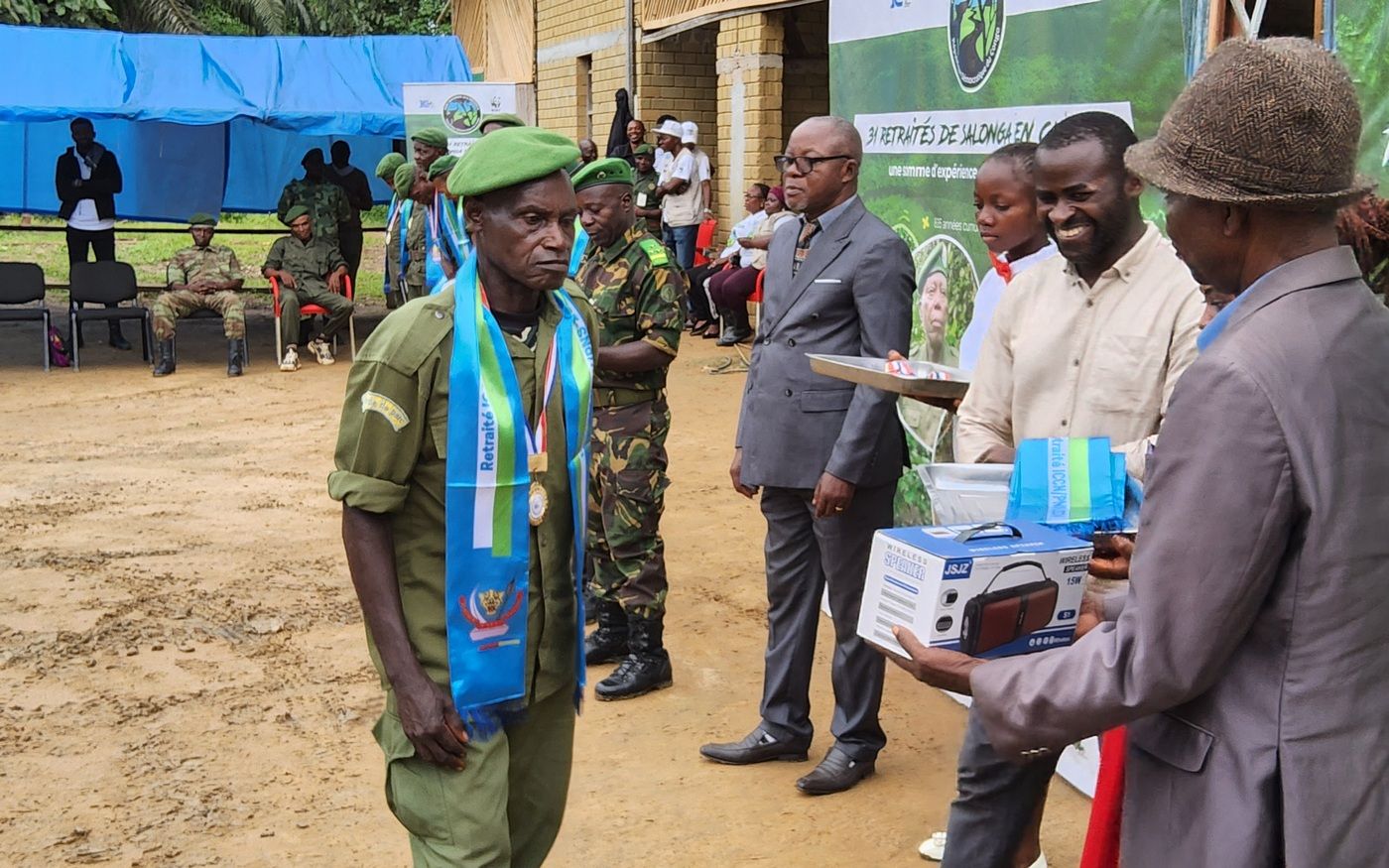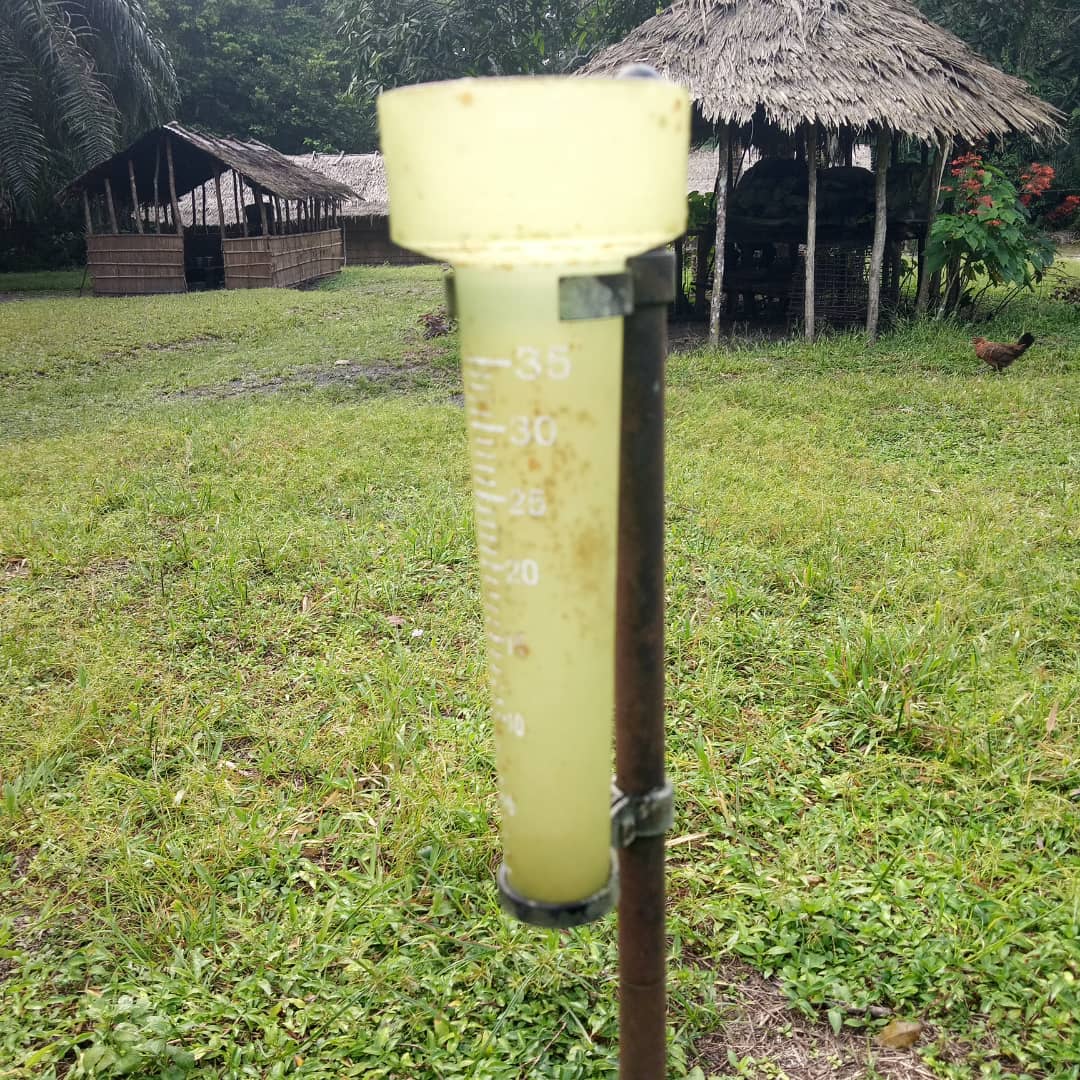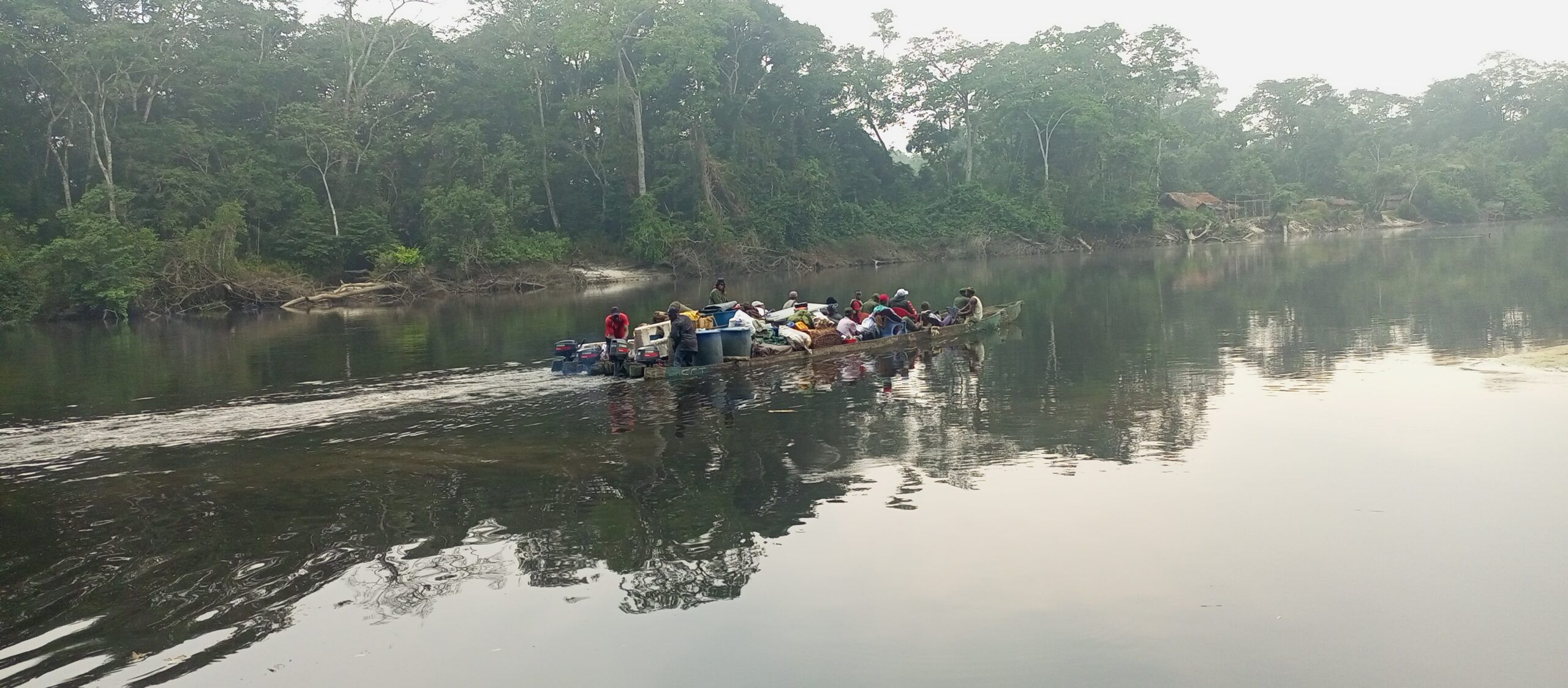The regional programme
The programme “human rights due diligence in the Congo Basin”, financed by the German ministry of development cooperation (BMZ), focuses on promoting and strengthening human rights for indigenous people and local communities (IP & LC) around three WWF priority landscapes in the Congo Basin, one of the most important biodiversity hotspots on earth. These landscapes include the Dzanga-Sangha Protected Areas in the Central African Republic (DSPA), the Lobéké National Park in Cameroon (LNP) and the Salonga National Park (SNP) in the Democratic Republic of Congo (DRC). The regional programme is coordinated by WWF DRC and implemented with several local civil society partners.
The indigenous and local groups living in the surrounding of the three national parks have traditionally maintained a close relationship with the parks, which until today secure a great part of their livelihoods. Protected areas have been created with the aim to conserve valuable ecosystems with unique plant and animal species. Therefore, access to the protected areas and usage of their natural resources are usually restricted.
For this reason, the establishment of protected areas often caused conflict regarding the usage rights of the indigenous groups and local communities. At the time of their creation (SNP in 1970, DSPA in 1990, LNP in 1999), these protected areas were established primarily for the purpose of conserving biodiversity and with little regard for how this might impact local people. At that time, indigenous and local communities were often not sufficiently involved in the decision-making processes and thus communities often felt deprived of a land they formerly used freely. A shortcoming that has repercussions to this day.
The local population, especially indigenous peoples, perceived the restrictions to access the forests where they have been living for generations as a traumatic loss. This feeling often prevails to this day and is part of the collective memory that is passed on from generation to generation. Paired with low levels of education and poverty this often leads to resentment of conservation measures.
We are striving to mitigate this resentment by the following activities and their associated benefits for the local communities:
- Improved and maintained ecosystem services through conservation. These include improved microclimate and water balance, or the spillover effects of game that reproduces in protected areas but can be hunted outside,
- Complementary support for rural development, such as sustainable agriculture and community forests that lead to increased soil fertility, as well as improved food and nutrient supply, ecotourism and the development and expansion of value chains.
- Increased involvement of indigenous peoples and local communities (IP&LCs) in decision-making processes.
The latter is a crucial step towards what we call “Inclusive Conservation”: enabling local communities to exert their rights and to decide how to manage and conserve the nature in their homelands. However, a prerequisite of this is that the local communities fully know, understand, and assert their rights, especially with regards to human rights in face of discrimination, marginalization and conflicts even non-violent ones or in case their resource/land usage rights are in question.
Unfortunately, in all three project countries, the rights of indigenous people and local communities are to date insufficiently recognized and often indigenous peoples and local communities themselves are not fully aware of their rights and duties towards the parks and parks’ management structures. By means of different WWF commissioned analysis, through long-lasting experience of WWF staff on the ground as well as ongoing discussions with communities and partners, we identified the following key challenges:
- Weak national legislation for indigenous people’s rights and weak implementation where these rights exist
- Absence of functioning and accessible grievance mechanisms around protected areas
- Insufficient capacity of civil society organisations (CSOs) to support indigenous and local communities’ rights
- Lack of regional coordination and exchange amongst CSOs representing local people
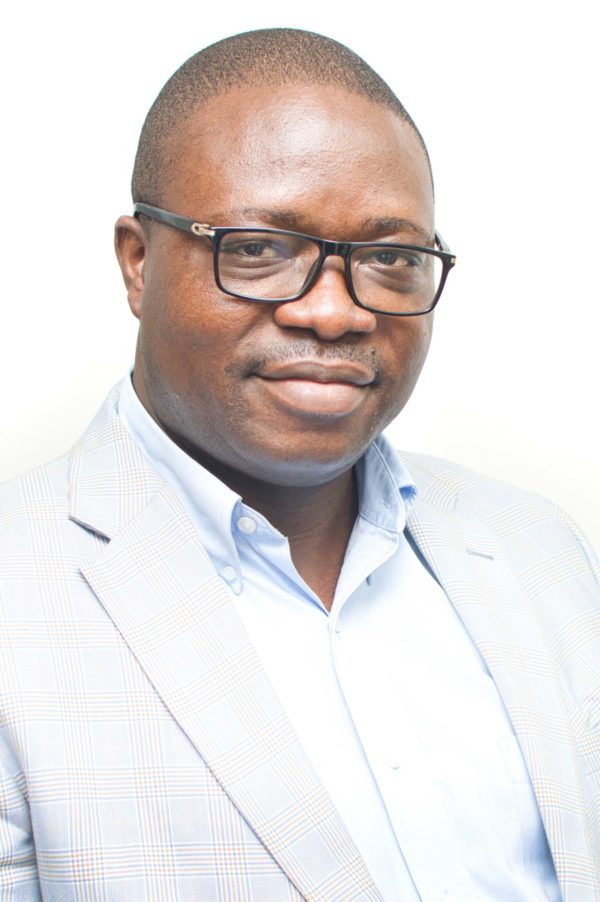
Franck Kamunga, Regional Human Rights Coordinator BMZ Programme
How do we tackle above identified challenges by the programme?
WWF DRC is partnering with different regional and local organisations to implement the new programme. Franck Kamunga, the Human Rights Coordinator of the BMZ Programme, provides clarity on how the programme addresses these identified challenges with three different approaches:
“Firstly, the national policy and legal framework that will ensure the promotion and protection of indigenous peoples’ (IP) rights should be supported so their rights are also reflected throughout the political and legal frameworks on the ground. Within the programme, political decision makers from local to national level will be made aware of the local and indigenous people’s rights situation as well as their other social and environmental claims”.
He continues, “through our partners REPAELEAC and REPALEF, regional and national indigenous peoples’ networks, the DRC government was supported to draft the country’s first ever law for the promotion and protection of IP rights. The law has just been promulgated by the President of the Republic, and we would like to congratulate everyone involved in this important work.”
Another approach is to build up a grievance mechanism process in the Salonga National Park. Franck Kamunga describes the setup of the mechanism as follows, “we have designed the grievance mechanism together with our partner JUREC, a Congolese NGO, and the local communities according to their needs. In doing so, we have ensured that local and cultural aspects are taken into account and that people really end up using the new mechanism.” Franck also stresses out that the mechanism has a special focus on marginalized and vulnerable populations, like indigenous peoples and women, as they do not have equal means to access and assert their rights as others.
According to Franck the introduction of the grievance mechanism was an important step in the history of the management of the Salonga National Park. “It is a very important tool to strengthen the dialogue with the local communities and give them the means to raise their concerns, while remaining anonymous if they wish so. We need to empower people to make their voice heard.”
Furthermore, Franck underlines that the grievance mechanism has many additional benefits for indigenous peoples and local communities, as it provides advice on conflict resolution and mediations and sensitizes the communities on their rights and obligations. Moreover, the mechanism has also helped improve local governance and relationships between IP & LC with the police forces who better understands the need of paying special attention to the fundamental rights of the communities, individually or collectively, and following the due diligence processes in dealing with cases brought to their attention on the ground.
A third aspect of the programme is to improve the organizational capacity of local civil society organizations in order to enable them to manage grievance mechanisms effectively and independently, while at the same time using their experience of working on the ground to contribute to policy advocacy and the improvement of legal frameworks at the national level. The project further aims to foster the knowledge exchange between the three NGOs that manage the complaint mechanism in the different sites (SNP, DSPA, LNP) amongst each other as well as with experienced networks promoting IP rights on international level (IPACC/REPALEAC).
One may ask why an NGO that is known for the conservation of nature and wildlife is dedicated to supporting human rights?
Franck Kamunga explains: “biodiversity rich areas are usually very remote and often neglected by the state. Even local NGOs are scarce and often not capacitated to support local and particularly indigenous people’s communities with regards to human rights or in view of their livelihoods. Therefore, it is a duty for WWF to provide as much support as we can, because we are often the only organization present on site. It is our firm belief that only together with strong local communities we will be able to protect these national parks for the best of the people and nature and against short-lived economic interest”.
He also quotes Marco Lambertini, the General Director of WWF International: “Respect for Human Rights is intrinsic to our work. Human Rights abuses are always unacceptable and can never be justified in the name of conservation”.
Due to its pilot character, the programme tries to also gain international traction to draw attention to IPCL rights in the Congo Basin. In order to provide ideas and inspiration, but also to gather impressions from other countries and continents, the project was presented at various international conferences. For instance, WWF and its programme partners IPACC/ REPALEAC and JUREC presented the programme at a UNESCO World Heritage Meeting in 2021, during a side-event at the UN Climate Change Conference COP 26 in Glasgow, and the recent APAC (African Protected Area Congress) in July 2022. In early December 2022, the programme is going to be presented to the International Indigenous Peoples Forum on Climate Change in Cairo, Egypt by our partners IPACC/ REPALEAC.
The project hopes to present more results on a website that is currently under development by IPACC, to spread the word about these crucial initiatives that bring conservation and human rights together.
